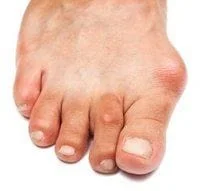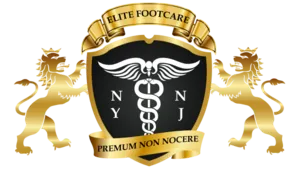
Most often found on the inner foot near the big toe but sometimes located on the fifth toe, bunions are a painful yet common condition caused by inflammation of the bursa. Bursa resides in the connective tissues of the bodies and is essentially a small fluid filled sac. The inflammation and thickening of these sacs creates a problematic bone formation that forces the toe out of alignment and causes great discomfort.
If you are suffering from bunions, you are most likely familiar with the symptoms. Pain, redness and extreme sensitivity are to be expected as bunion growth progresses and the affected toe is pushed out of alignment. If allowed to progress, bunions can make it difficult to walk and eventually cause severe pain.
Bunions may be passed down from parents to children, which suggests that the shape and action of the foot may cause the condition. When proper alignment is not used while standing, walking and participating in athletics, the integrity of the feet may be compromised and pressure can build throughout the foot.
There are several viable treatment options available for bunions. Contact us today to begin the process of freeing yourself from the pain that comes with this condition.
Considering or preparing for bunion surgery? Dr. Michael Genkin and the team at Elite Footcare NYNJ in Downtown Manhattan and Midtown Manhattan, New York, share some important information to know in this quick guide.
Guide to Bunion Surgery
Bunions can be painful to deal with, leaving sufferers desperate for relief. For some people, that relief comes with conservative methods. In more severe cases, though, surgery is often required. In this guide, Dr. Genkin and the team at Elite Footcare NYNJ in Downtown Manhattan and Midtown Manhattan, New York, explain the different types of bunion surgery, who might need surgical intervention, and more.
What Exactly Are Bunions?
Bunions are bony bumps that form on the joint of the big toe. They occur when something consistently moves the joint out of place and forces the tip of the big toe inward.
When Is Surgery Required for Bunions?
Surgery is often recommended for those who experience severe foot pain, regardless of how comfortable or supportive your shoes may be, or who have chronic inflammation and swelling in the big toe. If the toe is too stiff to move or the pain is significantly impacting your life, surgery is often recommended.
Generally, conservative methods are attempted first. If they do not correct the issue or provide relief, surgery is then performed. One of the main reasons that conservative approaches do not suffice is a deformity of the toe.
Types of Bunion Surgery
There are three main types of surgery for bunions.
- Osteotomy: During an osteotomy, incisions are made in the bones for pins or screws to be placed. This hardware helps restore proper alignment to the toe joint.
- Exostectomy: This type of surgery involves the bunion being shaved off. When it’s performed, it’s often done in conjunction with an osteotomy.
- Arthrodesis: This procedure is used when arthritis has played a role in the development of bunions. It involves removing the parts of the joint with arthritis and using screws to hold together what’s left.
Of the three surgeries, the osteotomy is the most common. An arthrodesis procedure is saved for severe cases, while the exostectomy is only used in the most minor cases.
How Quickly Will I Recover?
Typically, you’ll go home the same day as your procedure, but you’ll need to take it easy for the first two weeks. It will take up to 12 weeks to regain full foot function and up to nine months for all the swelling to go down.
If you have more questions about bunion surgery or need a consultation, call (718) 218-4075 to schedule an appointment with Dr. Genkin at Elite Footcare NYNJ in Downtown Manhattan and Midtown Manhattan, New York.
